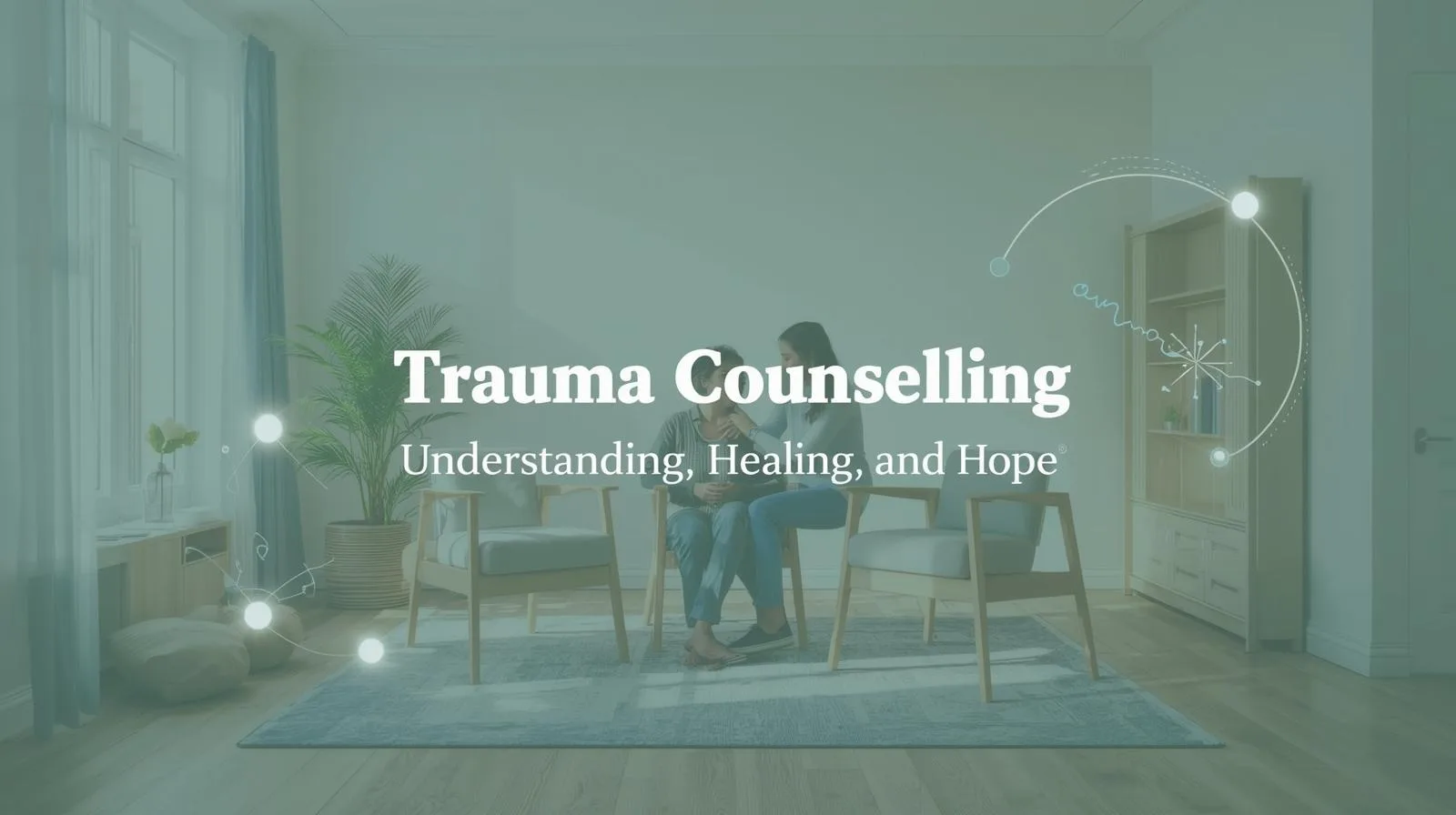As a registered Social Worker and Counsellor, I’ve supported many individuals through their trauma healing journey. Trauma can leave lasting effects on your emotional, physical, and mental health, often showing up in unexpected ways. The good news is that with the right support, recovery is not only possible but life-changing.
What Is Trauma?
Trauma is your body and mind’s response to overwhelming or distressing experiences. It may come from a single life-altering event or develop gradually through repeated exposure to difficult situations. What matters most is not just what happened, but how it affected your sense of safety, trust, and well-being.
If you’ve ever asked yourself, “Why am I still struggling with something that happened weeks, months, or even years ago?”—you’re not alone. At AM Counselling, I’m here to listen, to understand, and to walk alongside you as you heal.
Common Causes of Trauma
Trauma can happen to anyone—whether you are a child, teenager, or adult. It is not a sign of weakness, but rather a natural response to something deeply distressing. Some common causes include:
- Abuse: Physical, emotional, or sexual abuse can create long-term psychological scars.
- Accidents or Injuries: Unexpected events like car crashes or workplace injuries can leave you feeling unsafe long after they occur.
- Natural Disasters: Fires, floods, or earthquakes often bring lasting fear and uncertainty.
- Loss of a Loved One: Grief can overwhelm your ability to cope, especially after sudden or traumatic loss.
- Violence or Bullying: Domestic abuse, harassment, or community violence can erode your sense of safety.
- Serious Illness: Hospitalization or life-threatening health conditions can leave lasting fear.
- War or Assault: Witnessing or experiencing violence on this scale often results in long-term trauma.
Even if these experiences occurred years ago, they can continue to impact your mental health and daily life. That’s why professional trauma counselling is so important.
Signs You May Be Experiencing Trauma
Recognizing the signs of trauma is the first step toward recovery. Trauma affects each person differently, but some common symptoms include:
Emotional Symptoms: Many people experience ongoing anxiety, panic attacks, or mood swings. Others may feel a constant sense of sadness, guilt, or hopelessness, while some shut down emotionally and feel numb.
Physical Symptoms: Trauma often shows up in the body. You might have trouble sleeping, experience frequent nightmares, or feel drained of energy. Some people develop muscle tension, headaches, or even digestive issues without a clear medical cause.
Behavioral Symptoms: You may find yourself avoiding certain people or places, withdrawing from relationships, or turning to unhealthy coping mechanisms such as substance use or self-harm. Trusting others can also feel incredibly difficult.
If these symptoms sound familiar, counselling can help you make sense of your feelings and rebuild balance in your life.
Types of Trauma I Work With
No two trauma stories are the same. At AM Counselling, I tailor my approach to meet your unique experiences and needs:
- Acute Trauma: Caused by a single, overwhelming event such as a car accident, assault, or sudden loss.
- Chronic Trauma: Develops from long-term or repeated exposure to distress, such as ongoing abuse or neglect.
- Complex Trauma: Results from multiple traumatic experiences, often beginning in childhood and affecting relationships and attachment.
- Secondary or Vicarious Trauma: Experienced by those who care for or support others through trauma, such as healthcare providers or family members.
My Trauma Counselling Approach
Healing begins with feeling safe, heard, and understood. At AM Counselling, I provide a confidential and supportive environment where you can share your story without judgment.
Together, we focus on:
- Gaining awareness of triggers and learning to manage them in healthy ways.
- Rebuilding trust and a sense of safety in yourself and your relationships.
- Reconnecting with your emotions and physical body to release stored tension.
- Strengthening self-worth and confidence so you feel more in control of your life.
- Improving relationships and daily functioning so you can move forward with hope.
Healing Techniques I Use
Your healing journey is personal, and I integrate a variety of evidence-based approaches to fit your needs:
- Cognitive Behavioural Therapy (CBT): Helps identify and reframe negative thought patterns, giving you healthier ways to respond.
- EMDR (Eye Movement Desensitization and Reprocessing): A proven technique to reduce the intensity of traumatic memories.
- Somatic Therapy: Focuses on how trauma is stored in the body, helping you release physical tension and build resilience.
- Mindfulness & Relaxation Strategies: Techniques to calm your nervous system, reduce anxiety, and promote emotional balance.
Why Choose AM Counselling?
Choosing the right counsellor is an important step in your healing journey. At AM Counselling, I bring a combination of professional expertise and genuine compassion to every session.
- Experienced & Compassionate Care: I am trained in trauma-informed therapy and dedicated to creating a safe, respectful space.
- Confidential & Safe Support: Your privacy is always a priority. You can share openly, knowing your story is protected.
- Flexible Options: I offer both in-person and online sessions, making counselling accessible across Alberta and Ontario.
- Personalized Healing Plans: No two journeys are the same, so I design sessions that match your pace, needs, and goals.
When to Seek Trauma Counselling
You don’t need to wait for things to get “bad enough” before asking for help. Counselling can be valuable whether you’ve just experienced trauma or have been carrying it for years.
Reach out if you notice any of these:
- Feeling constantly on edge, hyper-alert, or emotionally overwhelmed.
- Avoiding certain people, places, or activities because they trigger memories.
- Struggling with nightmares, flashbacks, or difficulty sleeping.
- Feeling emotionally numb or disconnected from yourself and others.
- Having trouble maintaining healthy relationships or trust.
Stages of Trauma Recovery
Healing from trauma happens in stages, and progress is different for everyone. At AM Counselling, I guide you through these three phases:
- Safety and Stabilization: Establishing emotional and physical safety so you feel secure enough to begin healing.
- Processing Trauma: Exploring and working through the memories, emotions, and beliefs connected to your experiences.
- Reconnection and Growth: Rebuilding your sense of self, creating stronger relationships, and moving forward with resilience.
Start Your Healing Journey Today
Healing from trauma takes courage, but you don’t have to walk this road alone. With professional support, it’s possible to release the weight of the past and rediscover peace, strength, and hope for the future.
Contact AM Counselling today to book your confidential consultation. You deserve to feel whole, safe, and empowered again.



